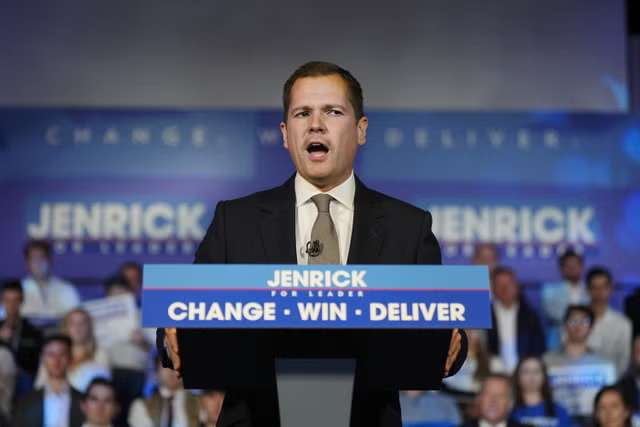Robert Jenrick has emerged as the frontrunner, securing 28 votes and outpacing Kemi Badenoch, who garnered 22 votes in the first round of voting in the Conservative leadership contest.
The result has surprised many, given Badenoch’s status as the favorite, both according to bookmakers and remarks made by Labour leader Sir Keir Starmer.
The elimination of Dame Priti Patel, who received only 14 votes, marks a significant moment in the race. With the field narrowing, the remaining candidates — former security minister Tom Tugendhat, ex-home secretary James Cleverly, and Mel Stride — continue to vie for leadership.
The contest is expected to intensify as the candidates prepare for the next round of voting, which will reduce the field to just four contenders. The final decision, to be made at the Conservative Party conference next month, will see MPs choose the top two candidates, with the ultimate winner decided by party members. The new leader is anticipated to be announced on November 2.
Earlier this week, Badenoch had been widely tipped as the favorite to win, both by political commentators and in the betting markets. However, it was Jenrick who took the lead in this initial round, despite controversy surrounding his recent comments.
Last month, Jenrick sparked outrage by suggesting that individuals shouting “Allahu Akbar” on London streets should be “arrested immediately.” His remarks, though contentious, appear not to have hindered his support among Conservative MPs.
The voting results are as follows: Robert Jenrick leads with 28 votes, followed closely by Kemi Badenoch with 22. James Cleverly, the former home secretary, secured 21 votes, Tom Tugendhat, the ex-security minister, gained 17, and Mel Stride, a former cabinet minister, received 16. Dame Priti Patel, another ex-home secretary, was eliminated with 14 votes.
In response to her results, Badenoch maintained a positive outlook, emphasizing the “huge support” for her campaign. She urged her supporters to address “hard truths today, rather than big problems tomorrow,” expressing her eagerness to continue campaigning nationwide. Her statement reflects a determination to push forward, despite the unexpected setback.
Leadership Race Reflects Deep Divisions on Immigration Policy
James Cleverly also expressed optimism, noting that “momentum” was on his side. He affirmed that he was “ready to lead, and win, the next General Election.” Meanwhile, Tom Tugendhat conveyed his honor at advancing to the next round, stating that he was “ready to serve, lead, and act to make Britain a better place.”

Robert Jenrick’s political career has been marked by his staunch right-wing views, particularly on immigration. His resignation from Rishi Sunak’s government last December, following a disagreement over emergency Rwanda legislation, was a significant event.
In his resignation letter, Jenrick criticized Sunak for not supporting a bill that would prioritize “national interests above highly contested interpretations of international law.” He also advocated for bypassing the European Convention on Human Rights (ECHR), a stance he has continued to champion.
Jenrick’s departure from Sunak’s government was described as “disappointing” by the Prime Minister, who suggested that Jenrick’s resignation was based on a “fundamental misunderstanding of the situation.” Despite this, Jenrick has remained resolute in his position, recently doubling down on his proposal to leave the ECHR.
As the leading candidate for the Tory right-wing, Jenrick has faced criticism from his rivals for allegedly seeking “easy answers” by advocating for Britain’s withdrawal from the ECHR. He has countered these claims by arguing that reforming the ECHR would take decades and that the Conservative Party must act decisively on immigration or risk losing voter trust permanently.
James Cleverly, who was responsible for overseeing the Rwanda deportation legislation, has defended the policy, asserting that it was not the ECHR but rather the UK Supreme Court that blocked Rwanda flights.
This ongoing debate highlights the deep divisions within the Conservative Party over how to address immigration and human rights issues, with the leadership race serving as a critical battleground for these differing viewpoints.
READ ALSO: Sammy Gyamfi Defends NDC’s 24-Hour Economy Policy, Dismisses Criticism as Misguided




















